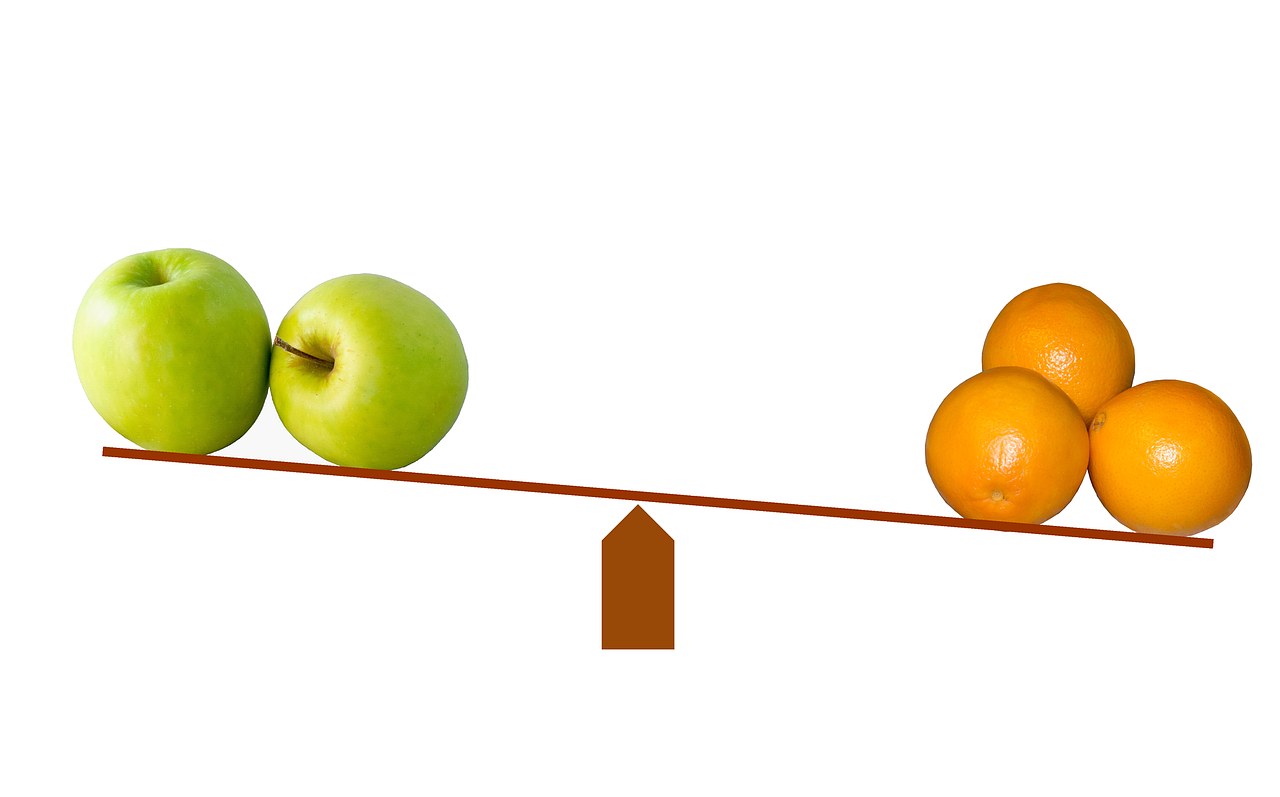Some people are naturally generous with their attention and affection – they show up, check in, and try to solve problems before anyone asks. That openness is beautiful, but when you’re paired with someone who doesn’t meet you halfway, the result is emotional overwatering. If you’ve been pouring energy into a lopsided bond and getting crumbs in return, it may be time to care less. Learning to care less isn’t about becoming cold or cynical; it’s about restoring balance, dignity, and peace of mind so you can see the relationship clearly and choose from a place of strength.
Why intentionally caring less can be healthy
At first glance, deciding to care less sounds backward. Love, after all, thrives on attention and effort. But relationships don’t exist in theory – they exist in everyday behavior. If your investment is wildly higher than your partner’s, caring less can reset the dynamic, protect your well-being, and give both of you an honest view of what’s actually happening. When you care less, you stop trying to force outcomes and start noticing the truth that’s already there.
Situations that call for stepping back
-
When your effort dwarfs theirs
Are you always the one initiating conversations, smoothing conflicts, and making plans while they coast? If you’re the default organizer, repairer, and emotional first responder, the ledger’s off. Choosing to care less lets you stop chasing, see whether they step up unprompted, and measure the relationship by real behavior – not promises. If nothing changes, that gap speaks for itself.

-
When selfishness is the norm
If your partner consistently prioritizes their comfort while you shoulder chores, logistics, and emotional labor, your generosity is being treated like a limitless resource. Self-focus can be a phase, but ongoing disregard isn’t a quirk – it’s a pattern. Caring less helps you stop compensating for their inertia and notice whether reciprocity appears when you stop carrying everything.
-
When your needs are sidelined
Healthy relationships make space for two people’s needs. When yours are routinely ignored, minimized, or met with defensiveness, caring less becomes self-protection. It redirects your energy from convincing them you matter to acting like you matter – and that shift changes everything.
-
When there’s been infidelity
After betrayal, many people care more – they interrogate, monitor, and overperform to keep the relationship from slipping again. But your self-respect isn’t a bargaining chip. Choosing to care less doesn’t erase pain; it stops you from auditioning for the role of “worthy partner” when the breach wasn’t yours. From that distance, trust either gets rebuilt through consistent action, or it doesn’t.

-
When there’s abuse of any kind
Disrespect – whether emotional, mental, verbal, or physical – is a hard stop. Caring less here means refusing to rationalize mistreatment or make it your job to absorb the impact. Your safety and dignity aren’t negotiable, and stepping back is a crucial act of self-care.
-
When the relationship makes you unhappy
Partnership should add to your life – bring steadiness, laughter, and support. If the relationship is a steady source of stress or sadness, caring less can quiet the noise long enough to hear your own judgment. From there, you can decide what truly serves your life.
-
When intimacy has flatlined
If your partner has emotionally checked out to the point that physical closeness is always on hold or always rebuffed, the connection is fading. Caring less halts the cycle of persuading, pleading, or taking rejection personally. It restores your self-worth and leaves space for honest decisions.

-
When conversations go nowhere
You’ve tried to talk about the state of the relationship – they avoid, deflect, or make vague promises that never materialize. Caring less means no longer chasing assurances. You stop treating words as a down payment and look at delivery instead.
-
When they’ve tuned out
Sometimes there’s no spectacular wrongdoing – just a low hum of disengagement. They’re present but not participating. Caring less helps you stop cushioning the silence and lets the emptiness be visible. That clarity is information – painful, yes, but useful.
How to care less without becoming hard-hearted
Detaching with care is a skill. The aim isn’t indifference – it’s right-sized investment. You’re not punishing your partner; you’re restoring your boundaries. These practices help you care less while staying kind, lucid, and grounded.
-
Retire the myth of “only one”
Scarcity thinking glues us to the wrong fit. Remind yourself that compatibility is not a once-in-a-lifetime lottery – it’s a meeting of values, effort, and timing. When you release the fantasy that this is your single shot at love, it’s easier to care less about salvaging something that isn’t reciprocated and more about choosing something mutual.
-
Put your energy back into you
People who overgive often neglect themselves. Redirect attention to sleep, movement, hobbies, and friendships that you’ve put on hold. As you rebuild daily rituals that nourish you, you naturally care less about managing another adult’s moods. The steadier you feel internally, the less you seek permission or validation.
-
Accept what you can and can’t control
You can influence, invite, and model – but you can’t renovate someone’s personality. Control ends at the waterline of your own choices. The moment you acknowledge that, you care less about steering their behavior and more about steering your own: how you communicate, what you tolerate, when you leave.
-
Choose trust or choose distance
Endless surveillance drains love. If you’ve decided to stay, act according to trust and let the truth surface through actions over time. If you can’t trust, create space. That binary clears mental fog. You care less about hunting for clues and more about watching patterns. Either path returns your time, which is priceless.
-
Build security from the inside
When your sense of safety depends on another person’s attention, you’ll cling – and clinging breeds anxiety. Practices that stabilize you – journaling, quiet mornings, skill-building, time with people who see you – make you less reactive. With internal steadiness, you care less about constant reassurance and more about consistency.
-
Keep your life bigger than the relationship
It’s easy to shrink your world to couple-dom and then panic at any wobble. Re-open your orbit: revive old interests, make plans without them, and maintain your friendships. A broader life means you care less about every text, tone shift, or plan change – because your happiness isn’t kept in a single basket.
-
Honor your ambitions
Chronic self-sacrifice breeds resentment. Revisit your goals and start taking small, steady steps: a course, a portfolio update, a morning routine that moves you forward. As you advance your own path, you care less about dimming to keep the peace and more about growing – with or without their applause.
-
Let past attempts teach you
Look back without self-blame. What have you tried? What actually improved things? What only exhausted you? Use those answers to shape your next move. When you treat experience as data, you care less about repeating the same conversations and more about changing your participation in them.
Practical ways to apply “less” in daily life
-
Shorten your response loop. You don’t have to be on call. Give yourself time before answering messages or requests, especially when you feel pressured. That pause helps you care less about instant smoothing and more about thoughtful replies.
-
Scale your effort to their effort. Match energy, don’t overcompensate. If they rarely initiate plans, stop overplanning. You’ll quickly see whether momentum exists without your constant push – and you’ll naturally care less about engineering it.
-
Speak in clear requests and boundaries. “I’m available to talk after work.” “I won’t continue this conversation if there’s shouting.” Boundaries are how you care less about pleasing and more about self-respect.
-
Stop rehearsing their lines. Notice when you imagine what they might say, feel, or do – then let the fantasy go. De-script the interaction. When you exit their head, you care less about controlling outcomes and more about listening to reality.
-
Track how you feel after interactions. Keep simple notes: lighter, heavier, seen, dismissed. Patterns emerge. Data replaces denial, and you care less about isolated “good days” when the trend is clear.
-
Protect your mornings and evenings. Bookend the day with routines that center you – reading, stretching, a walk. Tending to yourself first helps you care less about waking up to fix someone else’s mood.
-
Decline gracefully. You’re allowed to say no without a novel-length explanation. Each honest no makes it easier to care less about managing perceptions and more about honoring your limits.
What caring less looks like in conversation
Caring less is quieter than people expect. It’s not drama; it’s composure. Instead of arguing every point, you let silence do some of the work. You don’t chase after half-answers or bargain for scraps of attention. You ask direct questions, listen to what’s said – and what isn’t – and then respond with choices, not pleadings. The less you defend your worth, the more obvious your worth becomes, to you most of all.
Common fears that keep you overinvested
Fear of being “too much” or “too needy.” Needs aren’t moral failures. If your needs are perennially “too much” for this partnership, caring less will show you that the mismatch isn’t a personal defect – it’s a sign to recalibrate or move on.
Fear of starting over. Starting over is not starting from scratch – you take your growth with you. When you remember that, you care less about sunk costs and more about present reality.
Fear of losing the good parts. Every relationship has highlights. Caring less doesn’t erase them; it stops the highlights from outweighing the whole picture. You’re allowed to hold nuance and still decide that the overall fit isn’t right.
Rebalancing intimacy without withdrawing kindness
Detachment doesn’t require coldness. You can be warm and still be boundaried. You can care less about convincing and more about connecting where connection is reciprocated. You can care less about endless fixing and more about whether there’s mutual repair. This shift often clarifies whether your partner is willing to meet you in the middle or whether you’ve been standing there alone.
If the relationship improves when you step back
Sometimes caring less reveals effort from the other side – they notice the imbalance and begin to contribute. If that happens, let new patterns earn trust over time. Don’t sprint back into overfunctioning. Keep your routines, keep your boundaries, and keep your life spacious. Caring less got you clarity; continuing to care less keeps things honest.
If nothing changes
If you step back and the relationship continues exactly as before – or grows more distant – believe what you’re seeing. You’ve already done the work of turning toward yourself. From here, you can choose the path that respects your well-being. Caring less has done its job: it separated wishful thinking from observable truth.
A different kind of commitment
Commitment isn’t measured by how much discomfort you can absorb; it’s measured by shared effort, steady respect, and the ease of being yourself. When those are missing, loving yourself sometimes looks like less – less chasing, less contorting, less overexplaining. Ironically, that is how you end up with more: more calm, more clarity, and more room for the kind of relationship that meets you where you are. When you choose to care less about forcing a fit, you choose to care more about a life that fits you.